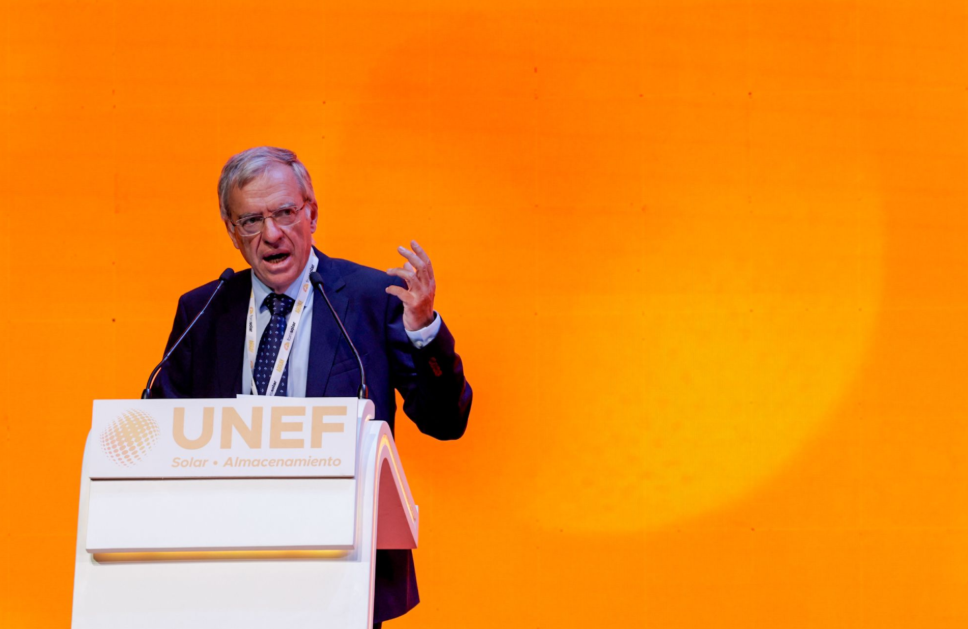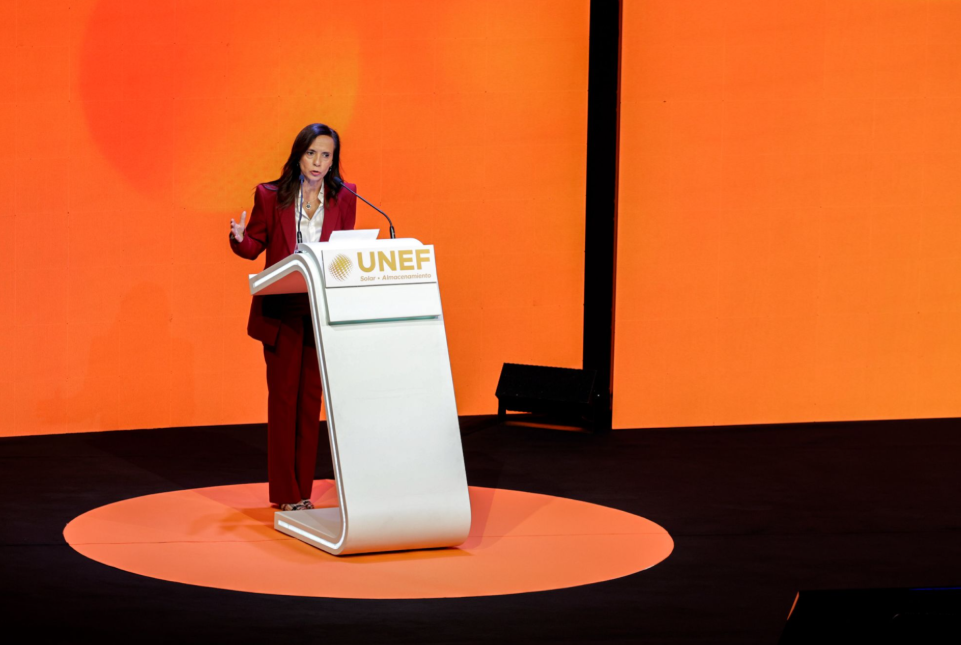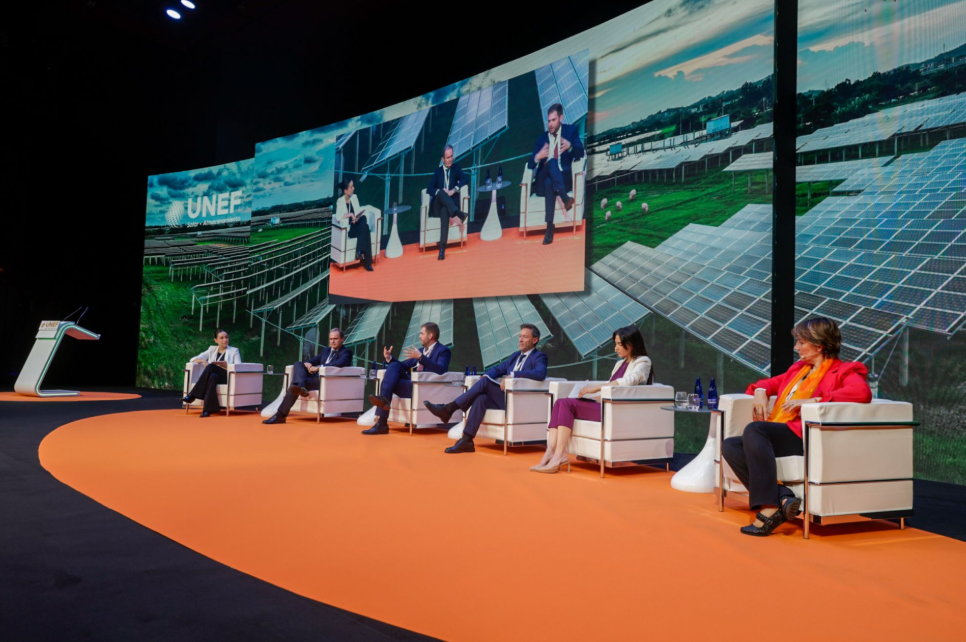- The Director General of UNEF, José Donoso, emphasized the great reindustrialization opportunity that photovoltaic energy represents for Spain, stating: “There is a 70 GW demand, attracted by the low energy prices that photovoltaic power offers in Spain.”
- Beatriz Corredor, Chair of Redeia, shared that they are “working as quickly as possible on the implementation of the new PO 7.4, for which we began the authorizations just last week.”
- Alberto Nadal, Deputy Secretary for Economy and Sustainable Development of the Popular Party, stressed that photovoltaic energy “is and must be” the backbone of the Spanish electricity system. However, for this to happen, demand and interconnections need to increase.
Madrid, 16 October 2025. The 12th Solar Forum, organized by the Spanish Photovoltaic Union (UNEF), has once again established itself as the benchmark event for the sector in Spain, bringing together more than 1,000 attendees. From this platform, the industry sent a unanimous message to institutions and the public about the need to seize the competitive advantage that photovoltaics, combined with energy storage, provide for the country.
According to José Donoso, UNEF’s Director General: “Our sector is at a crossroads, facing important decisions. There is a significant demand to meet in Spain: more than 70 GW between granted connection points and projects in planning. Our sector must be prepared to meet this demand and, in doing so, support the reindustrialization of the country. Most of these GW come from companies seeking the low-cost energy that photovoltaics produce.”

“This year has also been marked by the blackout, which brought challenges but also opportunities. There was a lot of misinformation. Initially, renewables were unfairly blamed, and the incident was attributed to a lack of system inertia. However, today reports confirm that the main problem was voltage control. While photovoltaic technology could contribute to this, the regulations at the time did not allow it.” he emphasized.
Donoso also highlighted the opportunities arising from this situation: “Necessary regulatory changes, such as those for storage implementation or updates to PO 7.4, are now moving forward. PO 7.4 will allow renewables to participate in voltage control, helping to create a safer, more reliable, and flexible system.”
In line with this, Beatriz Corredor, Chair of Redeia, commented: “We welcome the approval of PO 7.4 to allow renewables to control voltage, something we have been requesting from the system operator. We are working as quickly as possible on implementing this new service, and authorizations began just last week.”

Sector Pulse and Future Outlook
For the first time, the 12th Solar Forum featured a special intervention by Alberto Nadal, Deputy Secretary for Economy of the Popular Party, who shared his party’s energy vision and responded to questions from industry professionals in production, storage, self-consumption, and manufacturing.
Nadal emphasized that photovoltaic energy is already the cheapest form of electricity generation and “is and must be the backbone of the Spanish electricity system.” To continue developing, “demand must increase, interconnections must improve, and storage must be developed, both through pumped hydro and batteries.”
The second day of the Forum featured Eva María Blanco Benavente, Deputy Director General for Environmental Assessment at the Ministry for Ecological Transition, who analyzed the impact of renewable energy deployment on environmental assessments in Spain, highlighted the importance of renewables in the energy transition, and shared key measures to streamline administrative procedures.

The Forum also addressed the feasibility of manufacturing photovoltaic components in Europe following the approval of the Net Zero Industry Act (NZIA). Discussions covered major challenges in financing new projects under current conditions and the strategic value of local engagement, with representatives from government, mayors, and legal experts sharing best practices for integrating projects into communities.
Energy storage was another key topic, with a dedicated panel discussing its role in self-consumption and as a tool to decarbonize industry.

The 13th Solar Forum will take place on 7–8 October 2026.
